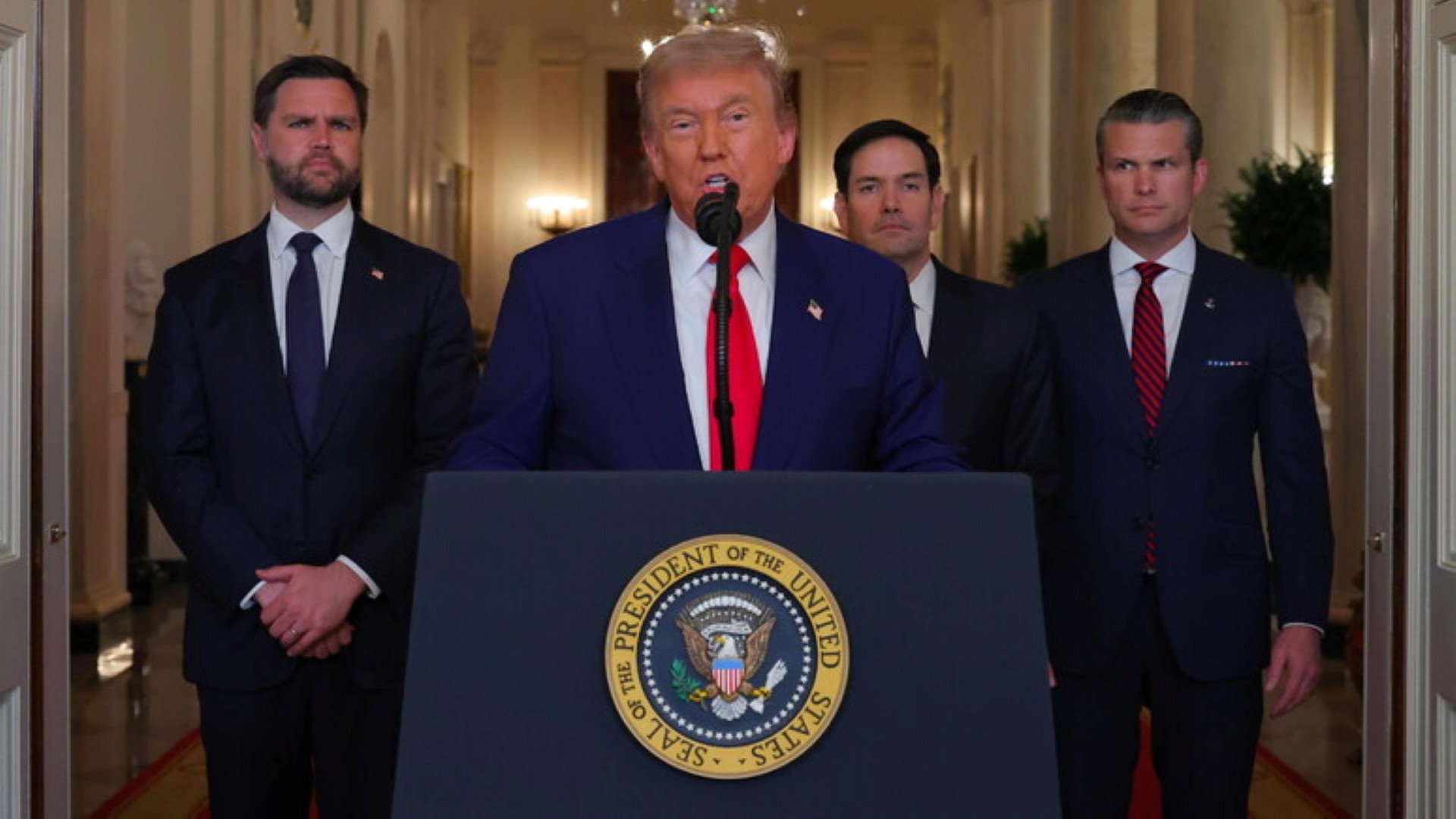The US and Israel’s War Against Iran Has Already Backfired
Screenshot via ABC News
In keeping with its longstanding role as Israel’s principal military and diplomatic backer, the United States has now escalated its involvement in the ongoing attacks against Iran by formally entering the war under a new military initiative—Operation Midnight Hammer, as confirmed by the Pentagon. In a historic and unprecedented move, the United States deployed B-2 Spirit stealth bombers—never used before in active combat—to drop some fourteen GBU-57 Massive Ordnance Penetrators (MOPs), each weighing 30,000 pounds and valued at an estimated $500 million, on sites in the vicinity of Fordow, Natanz, and Isfahan which hold Iran’s most fortified and strategic nuclear facilities. According to Iran’s Foreign Minister Abbas Aragchi, the sites had already been evacuated and nuclear materials were removed days before the strike, even noting that Fordow’s main facility had been sealed from the outside, thereby avoiding catastrophic fallout.
Simultaneously, the Islamic Revolutionary Guard Corps (IRGC) has launched what is now the twenty-second wave of retaliatory missile strikes as part of Operation True Promise 3, this time targeting Haifa in Israel’s north and—for the first time—occupied Jerusalem. This marks a significant shift in both strategy and messaging, suggesting that this war has now entered a new phase of direct confrontation. The joint US-Israeli military escalation against Iran reveals a broader strategy aimed not merely at collapsing Iranian infrastructure, but at engineering regime change through force and destabilization; they are betting on internal fragmentation, hoping that economic pressure and military strikes will catalyze dissent against the Islamic Republic of Iran.
-

-

-

-

-

-

-

-

-

-

-

-

-

-

-

-

-

-

-

-

-

-

-

-

-

-

-

-

-

-

-

-

-

-

-

-

-

-

-

-

-

-

-

-

-

-

-

-

-

-

-

-

-

-

-

-

-

-

-

-

-

-

-

-

-

-

-

-

-

-

-

-

-

-

-

-

-

-

-

-

-

-

-

-

-

-

-

-

-

-

-

-

-

-

-

-

-

-

-

-

-

-

-

-

-

-

-

-












































































































